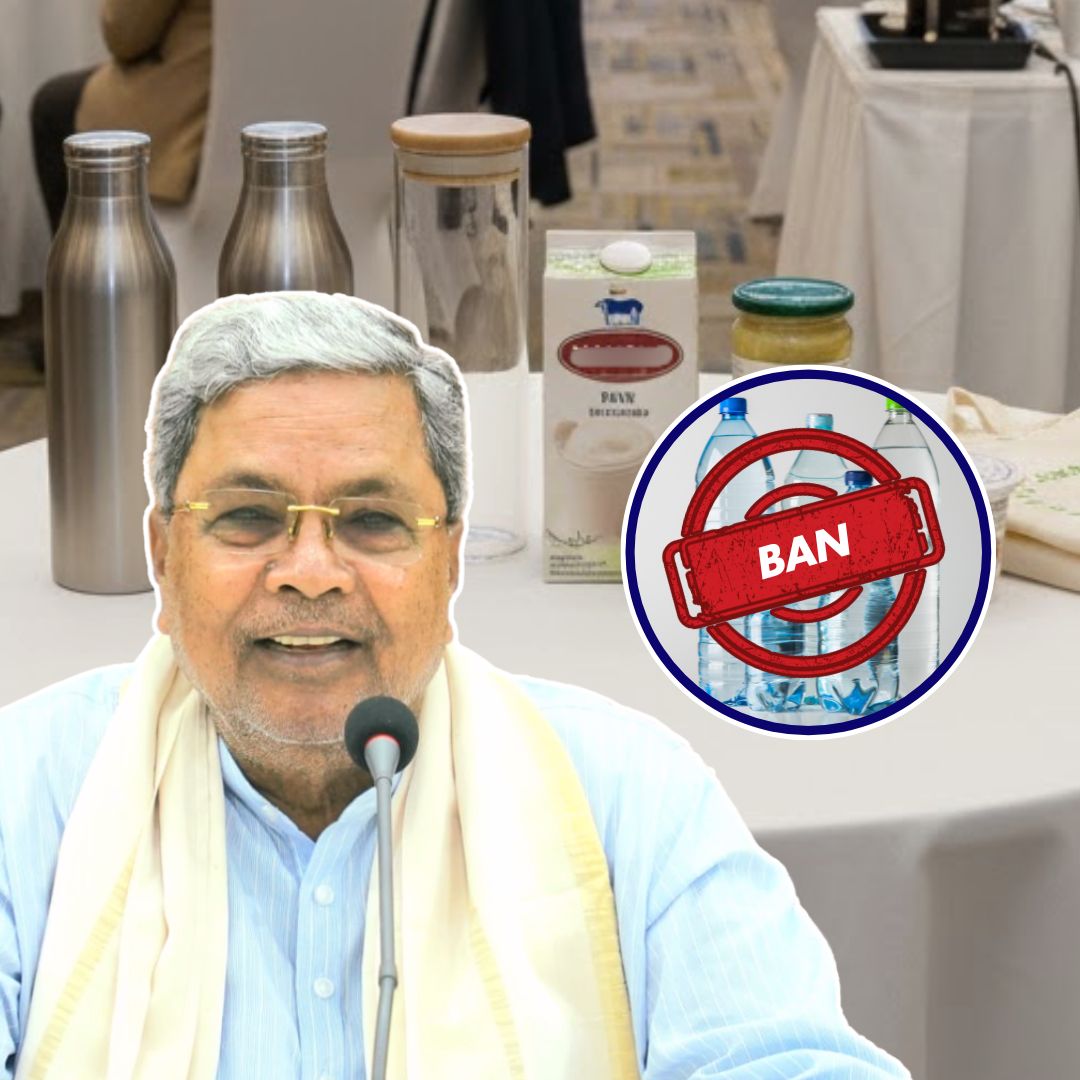Karnataka Chief Minister Siddaramaiah has taken a significant step in promoting environmentally sustainable practices across the state by issuing directives that aim to eliminate plastic water bottles from government offices and official events.
The move, announced in an official note on October 28, 2025, mandates all government departments to replace single-use plastic bottles with sustainable alternatives such as steel, copper, or glass containers. Alongside this, Siddaramaiah has ordered the exclusive use of Nandini products, produced by the Karnataka Milk Federation (KMF), in all government functions, including those held at the Vidhana Soudha and the Secretariat.
The decision is designed to reduce plastic waste, support local dairy farmers, and showcase Karnataka’s commitment towards a greener future.
Implementation Details and Stakeholder Perspectives
As part of this eco-friendly initiative, government officials have been instructed to transition swiftly to reusable or biodegradable drinking containers. Siddaramaiah emphasised that “instructions had been issued earlier to use eco-friendly materials instead of plastic bottles for drinking water,” urging strict enforcement of these guidelines.
The move also extends to ensuring Nandini dairy products are used exclusively during official events and meetings. Officials from the Department of Rural Development and Panchayat Raj have expressed support, stating that this initiative will set an example for citizens and other institutions to follow suit.
The promotion of Nandini products is seen as a strategic effort to bolster local dairy cooperatives, which are vital to Karnataka’s rural economy. The government’s support aims to provide a broader market for local producers, strengthening their livelihoods while aligning with the state’s sustainability goals.
Siddaramaiah’s government believes that fostering an eco-conscious culture within the public sector will pave the way for wider societal change. Industry experts and environmentalists have also lauded the move, viewing it as an essential step in reducing plastic pollution and advocating for responsible consumption.

Background and Broader Context
Karnataka’s push for sustainability builds on previous efforts to curb plastic use, such as banning plastic bags and utensils in several districts. The state’s environmental policies have historically aimed to combat pollution and strengthen eco-friendly practices.
The plastic ban in government offices is part of a larger, sustained campaign to promote waste reduction and ecological awareness among citizens and institutions. Additionally, encouraging the use of local products like Nandini aligns with the government’s strategy to promote self-reliance and rural entrepreneurship.
This move is also a response to the global environmental challenges, positioning Karnataka as a role model for other Indian states seeking sustainable development paths.
The Logical Indian’s Perspective
This policy demonstrates that meaningful change begins at the institutional level, inspiring citizens and businesses to adopt environmentally responsible practices. The Logical Indian views it as a positive and necessary step towards fostering a culture of sustainability and supporting local industries. These efforts promote harmony between ecological preservation and economic growth, highlighting that sustainable development is achievable when community welfare and environmental health are prioritized simultaneously.
However, effective implementation will require continuous monitoring and awareness campaigns. As we see Karnataka setting this precedent, the question remains: How can other states and sectors extend similar
ಸರ್ಕಾರಿ ಕಚೇರಿಗಳು ಹಾಗೂ ಸಾರ್ವಜನಿಕ ಸಭೆ ಸಮಾರಂಭಗಳಲ್ಲಿ ಪ್ಲಾಸ್ಟಿಕ್ ಬಾಟಲಿಗಳ ಬದಲಾಗಿ ಪರಿಸರ ಸ್ನೇಹಿ ವಸ್ತುಗಳಿಂದ ತಯಾರಿಸಿದ ಪರಿಕರ ಬಳಕೆ ಮಾಡುವಂತೆ ಈ ಹಿಂದೆಯೇ ಸೂಚನೆ ನೀಡಲಾಗಿದ್ದು, ಅದನ್ನು ಕಟ್ಟುನಿಟ್ಟಾಗಿ ಪಾಲನೆ ಮಾಡುವುದು ಮತ್ತು ಮುಖ್ಯಮಂತ್ರಿಗಳ, ಸಚಿವರುಗಳ ಸಭೆಗಳಲ್ಲಿ, ಸರ್ಕಾರದ ಎಲ್ಲಾ ಸಭೆ – ಕಾರ್ಯಕ್ರಮಗಳಲ್ಲಿ ಸರ್ಕಾರಿ… pic.twitter.com/PT92bJXfXW
— Siddaramaiah (@siddaramaiah) October 31, 2025












